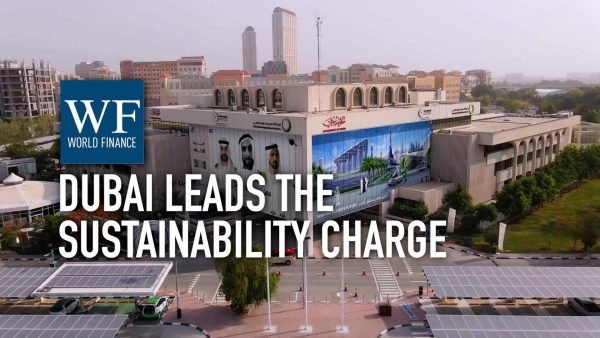Transcript
Dubai Electricity and Water Authority is the exclusive electricity and water utility provider for the emirate of Dubai. It generates, transmits, and distributes electricity and potable water to more than a million end users throughout the emirate, with a number of landmark projects and achievements that have made it one of the most effective, efficient, and sustainable utility providers worldwide. DEWA Managing Director and CEO, His Excellency Saeed Mohammed Al Tayer, explains how the authority has embedded the UN’s Sustainable Development Goals into its vision and strategy, is making viable progress towards achieving its carbon zero ambitions, and has established world-class governance across its operations to provide a sustainable service for the people of Dubai.
H.E. Saeed Mohammed Al Tayer: Sustainability is an essential part of our vision and strategy. DEWA is the first government organisation to adopt the 17 UN sustainable development goals in its strategic plan to achieve long-term sustainable growth with its economic, social, and environmental aspects.
Guided by the vision and directives of the wise leadership, we have a clear target for the energy sector to provide 100 percent of the energy production capacity from clean energy sources by 2050, based on the Dubai Clean Energy Strategy 2050, and Dubai Net Zero Carbon Emission Strategy 2050.
For many years, DEWA has stopped launching new projects that produce energy using fossil fuels. All our future generation and desalination capacity growth is intended to be based on the use of renewable energy.
One of our biggest projects to achieve 100 percent clean energy by 2050 is the Mohammed bin Rashid Al Maktoum Solar Park. This is the largest single site solar park in the world, utilising the independent power producer (IPP) model. Its current production capacity is 2,027 MW; about 14 percent of DEWA’s total power production capacity. By 2030 it will have a production capacity of 5,000 MW, using photovoltaic solar panels and concentrated solar power.
We are working on a 250 MW pumped-storage hydro-electric power plant in Hatta, that is the first of its kind in the GCC region. It will have a storage capacity of 1,500 MWh, using the water stored in Hatta dam.
Dubai achieved 21 percent CO2 emission reduction by the end of 2021, exceeding the target of 16 percent. We have a new target of 30 percent CO2 reduction by 2030.
Our other main initiatives include a joint district cooling company, Empower, with more than 40 percent reduction of electric energy consumption; a Super ESCO company to promote energy efficiency by retrofitting 7,792 existing buildings in Dubai to date; and installing 350 EV charging stations throughout Dubai, to date – it is planned to reach 1,000 EV charging stations by 2025.
DEWA also encouraged its customers to install photovoltaic solar panels on their premises with a connection to DEWA’s distribution network, to meet a part of their demand. By the end of 2022 the total installed capacity reached 493 MW.
Last, executing the Dubai Demand Side Management strategy resulted in a 17.1 percent reduction per capita in electricity consumption, and a 21 percent reduction per capita in water consumption.
Last year DEWA became a listed company on the Dubai financial market. This marked the beginning of an exciting new chapter in DEWA’s growth journey to become one of the leading companies regionally and globally.
DEWA has a world-class governance system and a continuous record of good governance across all its operations.
DEWA is quite active in the Middle East and North Africa OECD regional working group on corporate governance. This active partnership allows DEWA to benefit from the OECD countries’ corporate governance experiences, as well as highlight DEWA’s positive strides on corporate governance.
